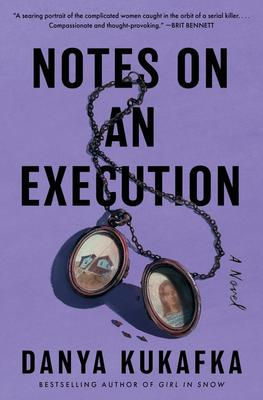"Notes on an Execution" | Reviewed by Jennifer Johnson
- cstucky2

- Feb 23, 2022
- 2 min read
In “Notes on an Execution,” author Danya Kukafka addresses our collective fascination with serial killers and true crime with a story both devastating and beautiful.
While most of our cultural focus is on the violent men and their horrible deeds, Kukafka gives voice to the women in the path of convicted serial killer Ansel Packer, their existence fully realized outside of their connection to him.
As the hours to his execution tick by we meet Lavender, Ansel’s teen mother and learn about her desperate journey of survival, for herself and her children. The violence that she and Ansel experience, while he is still so very young, and her subsequent absence provide the tragic origin story of the future serial killer.
The homicide detective Saffy, whose own childhood is met with tragedy, has a personal connection to the gruesome murders and the perpetrator. She struggles with near obsession about the unsolved case, despite agonizing knowledge of Ansel’s guilt.
Saffy has devoted her life to bringing men like Ansel Packer to their knees and while he walks free, she never ceases searching for the piece of the puzzle that will finally bring justice for the women he has harmed.
Hazel, sister-in-law to Ansel, helplessly watches her twin sister, Ansel’s wife, become a shadow of her former self as Ansel destroys her from within the bubble of their marriage. Even as Hazel works to help free her twin from her dangerous husband, her concern for her sister is complicated by the lifelong jealousy she harbors.
Through the lives of these women, we see the evolution of a killer, but the women featured here, as well as those whose lives are taken, are not just names on a list of victims and women who knew him, their lives have value and meaning and are bigger than their supportive roles in the telling of Ansel Packer’s story.
While never once providing excuses for the monster on death row, Kukafka provides so much humanity in her book. Though she creates empathy for the serial killer we meet as an innocent child, it doesn’t absolve Ansel of his crimes or make us root for his redemption. Instead Kukafka delicately questions our justice system, the far reach of childhood trauma and our obsession with crime stories, leaving us to wonder as Ansel’s last breath nears—is this justice?

.png)





Comments